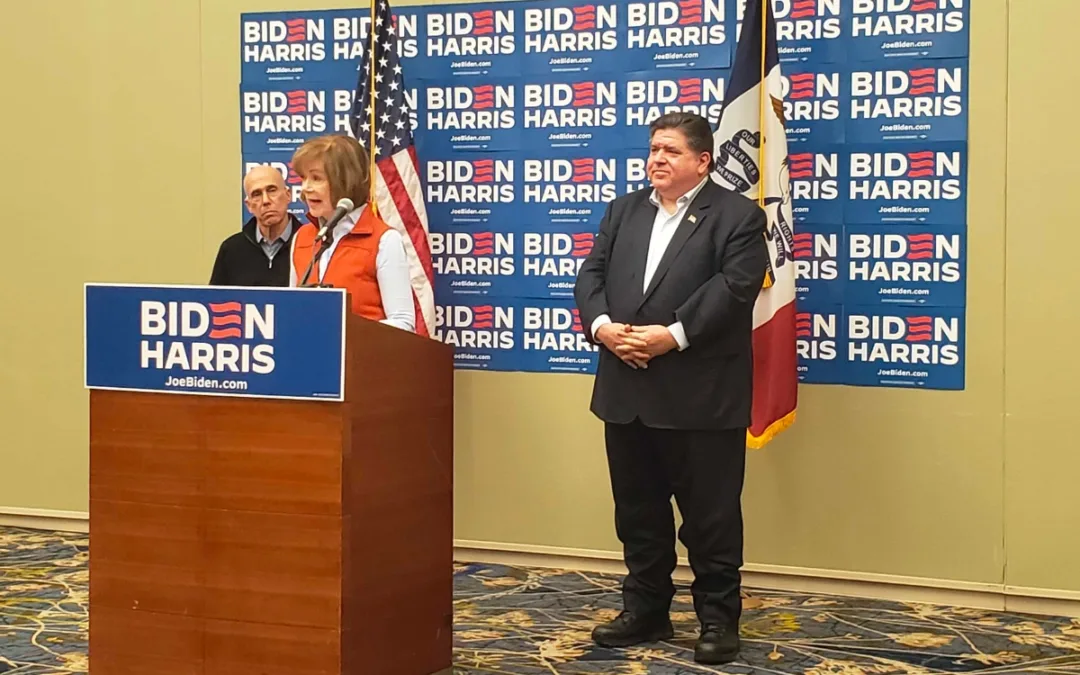
Redefining the rules of the 21st-century economy is a key premise of Andrew Yang’s presidential campaign.
And while the businessman/entrepreneur spends a lot of time talking about how his tech career helped him come to this realization, his family life may have just as much to do with it.
Yang spoke to more than 50 people inside a coffee shop in Iowa City on Saturday about the challenges facing special needs individuals and families, at an event called “Family and Autism: An Honest Conversation.”
Yang has a personal connection to autism; his oldest son Christopher was diagnosed with it just before his fourth birthday.
Special Needs Families At The Forefront
“I remember when Christopher was born, and we were first-time parents, and it was a struggle,” Yang said. “When he got his diagnosis when he was about to turn four, it was a massive relief to me. When he was two and struggling, three and struggling, you’re a first-time parent so you think maybe this is just normal. But when we got the diagnosis we thought, ‘Oh my gosh, now we know what we have to try to do.’”
[inline-ad id=”1″]
Yang doesn’t want to make changes that will “normalize” people with special needs, like coming up with ways to better assimilate them by morphing their behavior to what we expect of people without special needs.
Instead, the discussion revolved around ways to create and strengthen support systems for individuals with special needs and their families and creating a culture that would strive to understand people as they are.
There were several people in attendance dealing with these issues firsthand, and a few audience questions came directly from autistic individuals. One family even drove to Iowa City from Chicago to attend the event, focused solely on people and families dealing with autism – making it a first-of-its-kind caucus event.
“Autism affects every one of us differently, but I think we can all agree it is a topic that doesn’t get the attention that it fully deserves,” said Jessie Witherell, co-founder of the Iowa City Autism Community. “Every day, I witness the terrible effects of what egregious underfunding does to the quality of life to these vulnerable citizens. Resources are constantly lacking for housing assistance, employment, living wages, employee benefits and training, groceries, and so much more.”
The event featured honest conversation about the struggles facing special needs families. Much of it was focused on economic inequities, but it also was personal for those in attendance who have had to re-evaluate their priorities.
[inline-ad id=”0″]
Overcoming A Lack Of Resources
“The hardest thing that you can run into is, ‘How is my child’s life going to be different? What kinds of things are they going to have to face that other kids won’t?’” asked Al Womble, Yang’s Iowa campaign chair. “What kind of things am I going to have to think about, as a parent of a special needs child, that other parents won’t have to think about?’”
Many of the considerations special needs families face are economic. From specific funding policies to a general resource scarcity in public programs, these families feel an economic squeeze that many others don’t.
“If you have a special needs child, then you feel all this economic pressure almost immediately to get them the resources that they need, and many communities don’t have those resources on hand. Bigger picture, often times, special needs children become special needs adults. So, the question is, how will that person be self-sufficient moving forward? And in some cases, they will not be,” Yang explained.
[inline-ad id=”2″]
“The theme of this campaign is to rewrite the rules of the economy to work for us, the people, the shareholders of this country. If it’s not working for us, then it’s not working. And the problem is that, right now, we all see ourselves as economic inputs. If you lose economic value, then you’re valued less.”
This is where Yang’s line of redefining the economy melds his personal and professional life into the campaign he’s running now.
Special Needs At The Forefront
“Right now, in many ways I think special needs families are at the forefront of a particular challenge that actually applies to the entire country,” Yang said. “This is that we’ve all been collectively brainwashed to think that human value and economic value are the same thing.”
While Yang would like to change the economically-driven value culture we have in America, part of the conversation Saturday focused on financial realities that do exist and need to be addressed.
“I have a 17-year-old son who is autistic, now getting ready to transition into adulthood, and I have mixed feelings,” said Tammy Nyden, a philosophy professor at Grinnell College. “Part of me is daunted; young adults with autism have the highest rate of unemployment, at 58%. But another part of me is excited, because childhood has not been easy.”
[inline-ad id=”3″]
“Schools Being Under-Resourced Is Not Our Kids’ Fault”
“Special needs is the new normal. Trying to say that I’m going to normalize my child should not be the point. Our schools being under-resourced is not our kids’ fault. One of the things I want to fight for is that we need to lighten up on our standardized tests,” Yang said. “The SAT was originated during World War II as a means to identify which kids to not send to the front lines, and now we use it every year like every year is wartime; we’re pummeling our kids with this war-time tool.”
Autistic individuals in the audience got first dibs when it came time for questions.
Topics included funding gaps for special needs people; limitations on resources at the federal level for schools and police officers; interacting with special needs people who are prone to sensory overload; how to help moderately autistic people live independently, transition into adulthood, get a job and develop life skills; and a question about changing expectations of masculinity and how autistic males fit that shift, including the pushback on gender fluidity in the Midwest.
[signup_form]
After the event, Yang also commented on chemicals and treatments used in agriculture and production that have been linked to increased rates of autism, as well as physical birth defects, in certain communities.
“We need to invest in research that helps identify the rise in the instances of autism, ADHD, special needs, visibility. We are modifying our food supply in unprecedented ways, and that’s having effects that we haven’t really identified properly,” Yang said. “So, I would invest resources into making sure we know what’s coming into our bodies, our children’s’ bodies, and affecting our people.”
By Josh Cook
Posted 12/15/19
Politics

How to apply for a job in the American Climate Corps
The Biden administration announced its plans to expand its New Deal-style American Climate Corps (ACC) green jobs training program last week. ...

Biden makes 4 million more workers eligible for overtime pay
The Biden administration announced a new rule Tuesday to expand overtime pay for around 4 million lower-paid salaried employees nationwide. The...
Local News

No more Kum & Go? New owner Maverik of Utah retiring famous brand
Will Kum & Go have come and gone by next year? One new report claims that's the plan by the store's new owners. The Iowa-based convenience store...

Here’s a recap of the biggest headlines Iowa celebs made In 2023
For these famous Iowans, 2023 was a year of controversy, career highlights, and full-circle moments. Here’s how 2023 went for the following Iowans:...





